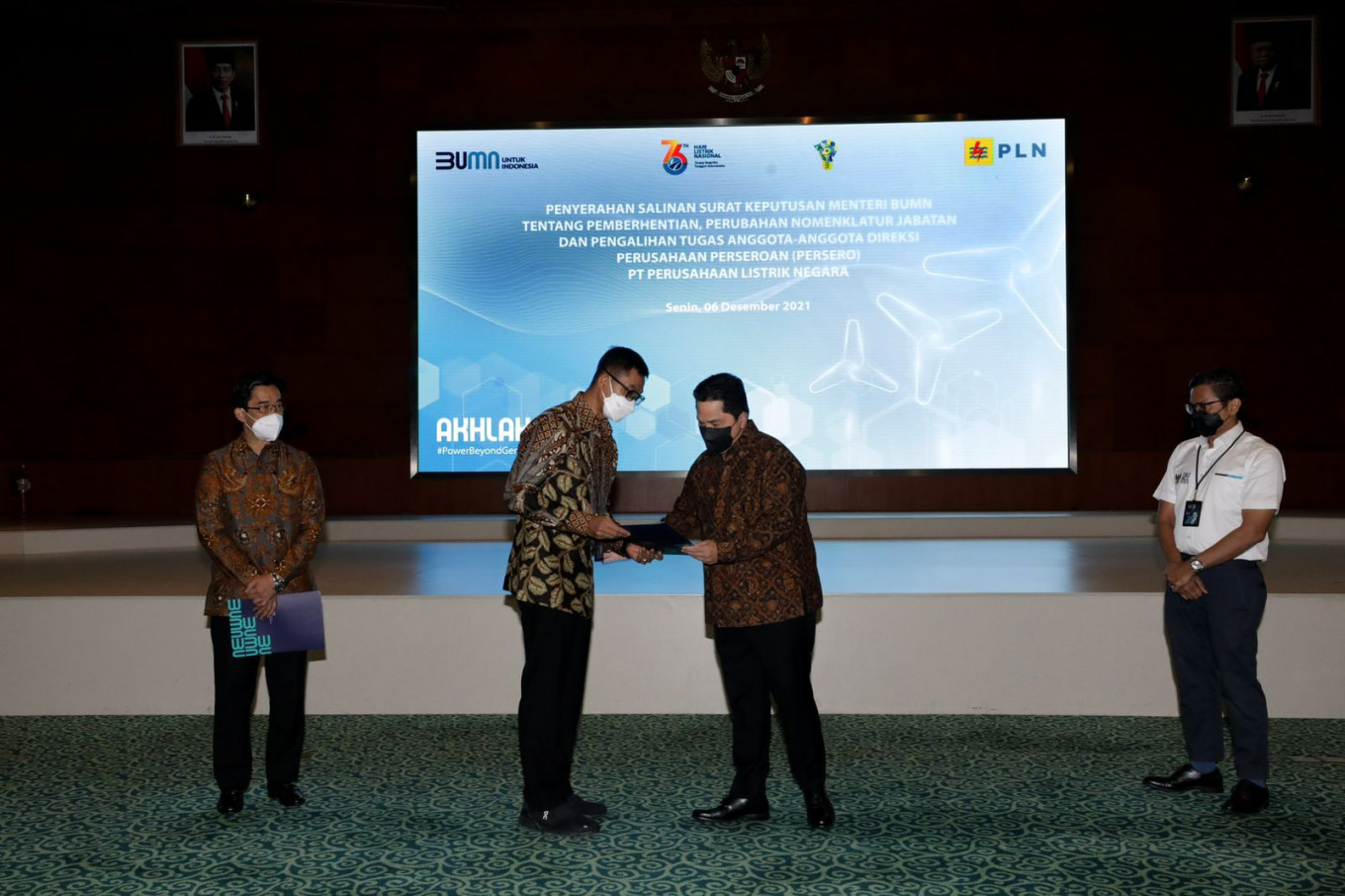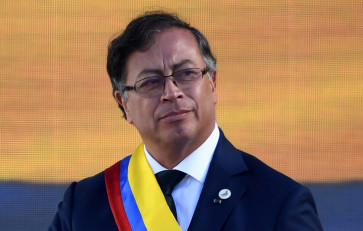Popular Reads
Top Results
Can't find what you're looking for?
View all search resultsPopular Reads
Top Results
Can't find what you're looking for?
View all search resultsPDI-P politician appointed as PLN president director
Darmawan Prasodjo holds a doctorate in natural resource economics and membership in the political party of President Joko "Jokowi" Widodo.
Change text size
Gift Premium Articles
to Anyone
F
ollowing a general shareholders meeting, the State-Owned Enterprises (SOE) Ministry promoted on Monday economist and politician Darmawan Prasodjo from vice president director to president director of state-owned electricity distribution monopoly PLN.
Darmawan, a member of the Indonesian Democratic Party of Struggle (PDI-P), replaces seasoned banker Zulkifli Zaini, who held the position for nearly two years, or since December 2019. Darmawan took office on Monday.
Read also: Former Mandiri boss, ex-KPK deputy chief named new PLN top brass
In a statement, SOE Minister Erick Thohir instructed Darmawan to “continue the transformation” of PLN into a more modern and greener power company, but to do so in a way that “does not burden the state or the people".
PLN is stuck between a rock and a hard place. On one hand, the company is obligated to distribute electricity at subsidized prices and expand power grids to remote regions of the country Indonesia.
On the other hand, PLN is being pushed to minimize its reliance on state coffers and to modernize its power system, which is a costly undertaking that includes developing renewable energy power plants, smart grids and electric vehicle (EV) infrastructure.
The COVID-19 pandemic has exacerbated PLN’s financial woes, as the government used PLN to offer even more electricity discounts for poor households as a form of emergency relief.
Read also: Cash-strapped PLN steers away from green energy
Darmawan was born in Magelang, Central Java, on Oct. 19, 1970. He holds a master’s degree in computer science and a doctorate in natural resource economics, both from Texas A&M University.
In 2014, he ran for a seat at the House of Representatives, but lost, while also serving as energy economics adviser to Joko “Jokowi” Widodo for the 2014 presidential election. He subsequently served as an adviser with the Executive Office of the President for four years, starting 2015, before being appointed PLN vice president director in 2019.
Darmawan told reporters on Monday that he had been instructed to stick with the company’s net-zero 2060 goal, which includes building more new and renewable energy power plants, as outlined in the latest electricity procurement plan (RUPTL).
He vowed to continue efficiency measures to improve PLN’s finances and tackle PLN’s excess generation capacity by promoting the use of EVs and electric stoves and by electrifying isolated industrial facilities.
He noted, though, that electricity prices were still up to the government.
“There needs to be preparation to ensure these programs run smoothly. It is about how PLN can do corporate restructuring to be more agile in facing challenges not only now, but in the future,” he said.
Erick went on to acknowledge Zulkifli’s role in improving PLN’s finances over the past two years, but also that “the challenge of transforming PLN was not limited to financial improvement.”
PLN’s net profit grew 24-fold to Rp 6.61 trillion (US$457.9 million) in the first half of this year as the government disbursed compensation funds, the rupiah strengthened against the US dollar and electricity consumption picked up amid eased pandemic restrictions, according to the company’s financial report.
Revenue grew 6.7 percent yoy to Rp 175.92 trillion in the first half, mainly because of government compensation received for subsidies, while operational expenses grew 1.3 percent yoy to Rp 151.9 trillion, driven by higher electricity offtake expenses.
PLN’s finances also improved as the rupiah strengthened against the greenback, indicated by an exchange rate loss that narrowed 43.3 percent yoy to Rp 4.42 trillion in the first half. The company uses US dollars to buy power plant fuel.
In his speech, Zulkfi thanked the SOE Ministry, PLN commissioners and other stakeholders for their “extraordinary” support in addressing the challenge of electrifying all corners of the country.
The Energy and Mineral Resources Ministry has recorded Indonesia’s electrification ratio at 99.4 percent as of the third quarter this year and aims to reach 100 percent next year. East Nusa Tenggara is the only province with an electrification ratio below 90 percent.










